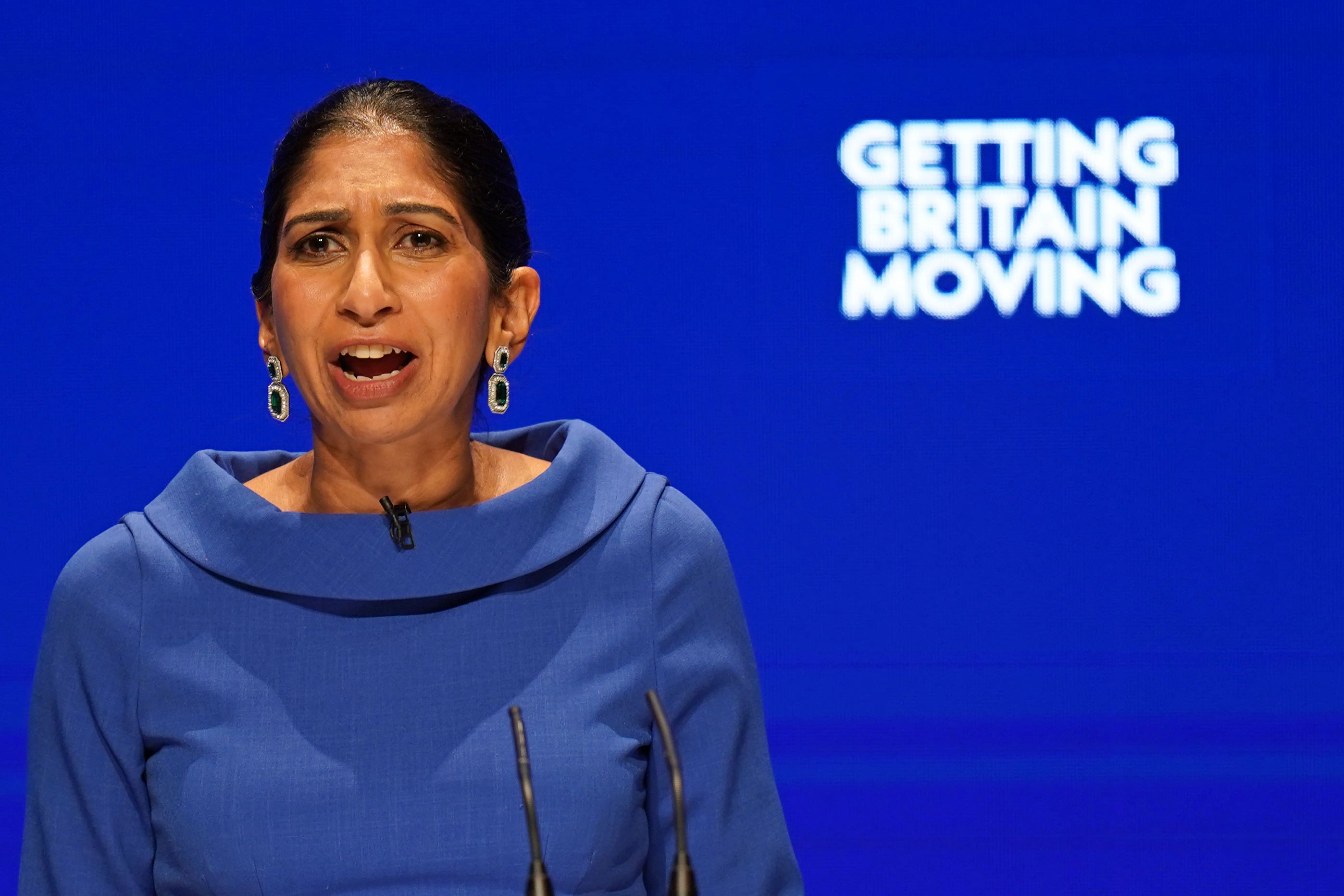Home Secretary has ‘reservations’ over relaxing immigration for India trade deal
The UK is currently negotiating a trade agreement with India

Your support helps us to tell the story
From reproductive rights to climate change to Big Tech, The Independent is on the ground when the story is developing. Whether it's investigating the financials of Elon Musk's pro-Trump PAC or producing our latest documentary, 'The A Word', which shines a light on the American women fighting for reproductive rights, we know how important it is to parse out the facts from the messaging.
At such a critical moment in US history, we need reporters on the ground. Your donation allows us to keep sending journalists to speak to both sides of the story.
The Independent is trusted by Americans across the entire political spectrum. And unlike many other quality news outlets, we choose not to lock Americans out of our reporting and analysis with paywalls. We believe quality journalism should be available to everyone, paid for by those who can afford it.
Your support makes all the difference.Home Secretary Suella Braverman said she has “reservations” about relaxing immigration controls as part of any trade deal with India.
Earlier this year, then prime minister Boris Johnson indicated an agreement could mean accepting Delhi’s demands for an increase in Indian migration to the UK.
It is the second time in less than a week that the Home Secretary has expressed a view that risks putting her at odds with Government policy.
Earlier this week, she was criticised by a senior Government source for saying she believes the UK should leave the European Convention on Human Rights.
Prime Minister Liz Truss is struggling to enforce party discipline, following an annual conference which descended into public disagreements between prominent Tory members, including the Cabinet.
Speaking to the Spectator magazine, Ms Braverman also said her party has not met previous manifesto commitments to reduce immigration, and suggested she would like to see people who have retired early return to the workforce.
The number of over-fifties who are not working has considerably increased. I think that is a cohort that can be in gainful employment
Speaking about a trade deal with Delhi, Ms Braverman said: “I have concerns about having an open borders migration policy with India because I don’t think that’s what people voted for with Brexit.”
Responding to a suggestion that the issue is about visa flexibility and not open borders, the Home Secretary reportedly accepted there may be flexibility for students and entrepreneurs.
“But I do have some reservations,” Ms Braverman told the Spectator. “Look at migration in this country – the largest group of people who overstay are Indian migrants.
“We even reached an agreement with the Indian government last year to encourage and facilitate better co-operation in this regard. It has not necessarily worked very well.”
Under Boris Johnson’s leadership, the Government said it wanted the majority of trade talks to be concluded with India by the end of this month.
Addressing the wider question of immigration, Ms Braverman said: “I campaigned to leave the EU because in part I wanted migration to fall.
“That was in our 2019 manifesto. If you look at net migration figures, they have not fallen – we’re pretty much at the same level as pre-Brexit.
“We’ve got the levers in place. Priti Patel and Boris Johnson put in the points-based system… I think we should start exercising that power.”
The Home Secretary suggested she wanted net migration to be in the tens of thousands, but said: “Ultimately, I’m not going to put a date on when we’re going to get there. It will take some time, but we do need to get the numbers going down.”
She also told the magazine that she disputes the suggestion immigration rules should be relaxed to improve national economic performance, reportedly pointing to the number of people receiving benefits as a potential source of additional workers.
Ms Braverman said: “We have a large cohort who can work but are not working – and they’re doing that out of choice in many cases. There are people who are choosing early retirement.
“The number of over-fifties who are not working has considerably increased. I think that is a cohort that can be in gainful employment.
“We have people who are choosing to work part-time and top up their income through tax credits – a choice that they’re making because they’re making more money on welfare.”